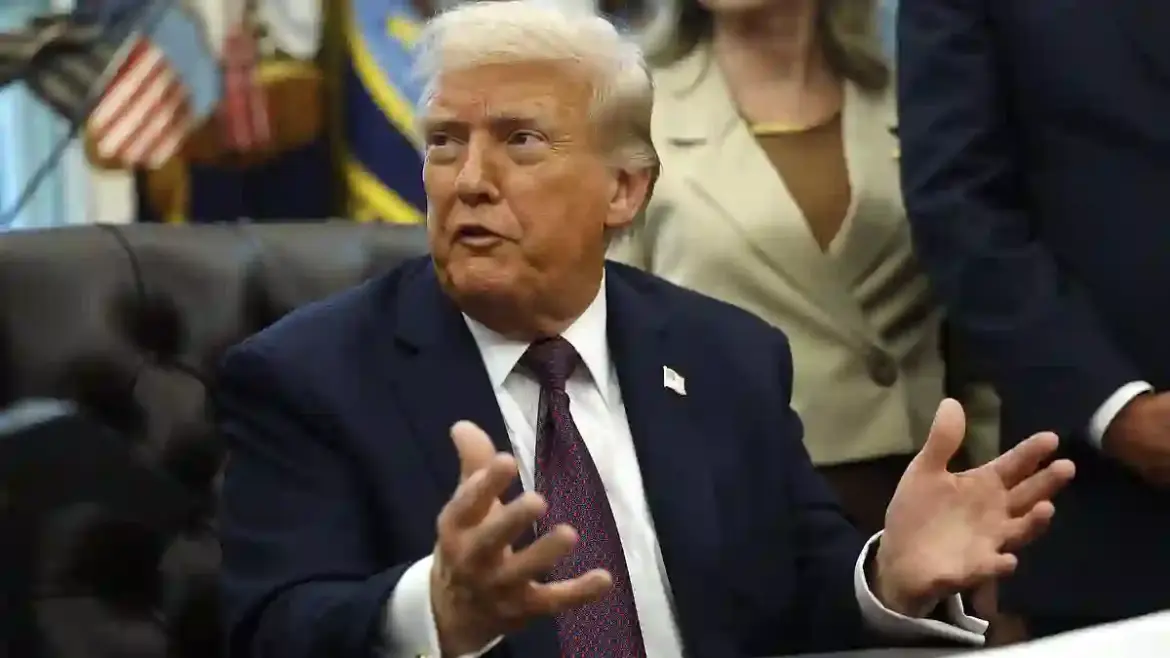Donald Trump has reignited an old debate with a major new announcement — he’s officially designating Antifa as a terrorist organization.
The former president, who’s been vocal about the group since his first term, revealed the decision in a fiery Truth Social post late Wednesday night.
The Announcement on Truth Social
Trump didn’t mince words in his statement.
He called Antifa a “sick, dangerous, radical left disaster” and said those who financially support the group should be investigated under the strictest legal standards.
His post signaled a much tougher stance on anti-fascist groups than we’ve seen before.
Who Exactly Is Antifa?
Antifa — short for “anti-fascist” — isn’t one single organization but rather a loose network of left-leaning militant activists.
They’ve been known to confront fascists, white supremacists, and neo-Nazi groups, especially at protests.
Because they lack formal leadership or a central structure, experts have long argued it’s nearly impossible to treat them as a unified terror group.
A Debate Dating Back Years
This isn’t the first time Trump has floated the idea.
Back in 2020, during the unrest after George Floyd’s murder, he suggested labeling Antifa as terrorists.
But at the time, then-FBI Director Christopher Wray pushed back, describing Antifa as an “ideology” rather than a structured entity — meaning it didn’t fit the usual definition of a terror group.
Republican Support
Still, many Republicans have rallied behind Trump’s stance.
Louisiana Senator Bill Cassidy praised the move, accusing Antifa of hijacking legitimate protests to promote violence.
He and Senator Ted Cruz had already pushed for a similar resolution back in 2019, calling Antifa “hateful radicals” responsible for assaults on journalists and violent threats against ICE agents.
Wider Political Strategy
Trump’s declaration comes just days after he suggested he may also strip certain left-leaning nonprofits of their tax-exempt status, accusing them of violating anticorruption laws. “Antifa is terrible.
There are other groups,” he said earlier this week, hinting at broader actions against organizations he sees as radical.
Timing After a Political Assassination
The timing of Trump’s announcement is striking. It comes just a week after the assassination of conservative activist Charlie Kirk, who was fatally shot while speaking at Utah Valley University.
Investigators say the suspect, Tyler Robinson, 22, held far-left, anti-fascist ideologies. Bullets found in the weapon were even engraved with anti-fascist slogans.
A Growing Concern
Authorities have labeled Kirk’s killing a political assassination, while some of Trump’s allies — including Steve Bannon — are linking it to Antifa.
On his War Room podcast, Bannon speculated about possible connections, saying investigators need to dig deeper into the group’s networks.
Looking Back at Past Threats
Bannon even compared the Utah shooting to last year’s failed assassination attempt on Trump in Pennsylvania, raising questions about whether these incidents are tied to broader extremist movements.
Though investigators say the Utah suspect acted alone, Trump’s supporters remain unconvinced.
What Comes Next?
For now, the biggest question is how Trump’s administration plans to legally enforce this new designation, given Antifa’s lack of formal structure.
Critics say it could be more symbolic than practical, but supporters believe it marks a strong step against what they see as a violent, extremist movement.
Either way, Trump has ensured Antifa is once again at the center of America’s political battlefield.
